Fighting an ideological battle
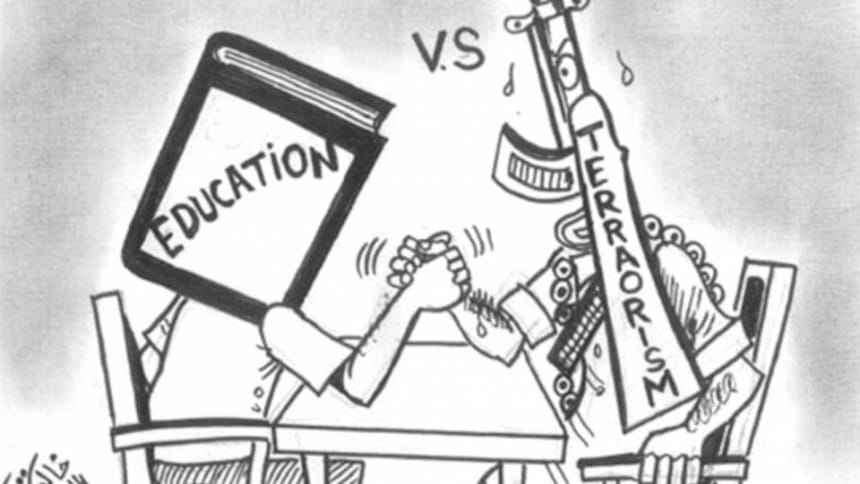
The Gulshan attack of July 1 was meant to strike terror in the hearts of foreigners and women who, according to the terrorists do not conform to their ideals. It was aimed also to harm the economy and international relations of Bangladesh. The second attack, on Eid day, in Sholakia, was a defiant rejection of the recent anti-terrorist declaration issued by one lakh Islamic scholars and Imams, and a warning from the self-appointed "guardians of pure faith" to all others, that peaceful Islam as practiced by for centuries in Bengal, will not be tolerated.
The appeal for national unity by the PM is timely, and the security measures announced by her are absolutely necessary. However, terrorist activities, carried out by deluded yet highly motivated young men seeking martyrdom and entry to heaven, can't be defeated by security measures alone. An ideological unity of the masses, forged around the four state principles enshrined in the 1972 constitution is necessary to defeat all reactionary and obscurantist ideas that feed terrorism.
Both terrorist teams comprised of madrassa-educated young men from poor families as well as those educated in elite institutions with liberal and affluent backgrounds. It showed that they were imbued with the same beliefs and motives in spite of their widely divergent backgrounds. It has now come to light that incarcerated leaders of banned, and still to be banned, militant organisations came together in Kashimpur jail to plan, finance and provide guidance for the recent massacres. Whether or not IS and Al Qaeda physically exist in Bangladesh is immaterial as they share with the local terrorist organisations the same aim of establishing a Shariah-based "caliphate".
The barbaric acts were highly sensational but were they really unexpected? Over the last three years unbridled political violence to effect regime change, and to save the necks of condemned war criminals,led to indiscriminate killings and also selected attention-grabbing assassinations of soft targets. The masterminds and financial sponsors of the recent violence could be the same people who carried out the mass killings in 1971 in the name of Islam and who since then have ceaselessly worked to undermine Bangladesh's independence with the support of political elements opposed to our liberation ideology.
What caused these young men to turn their backs on their families, disappear for months and then emerge suddenly as merciless executioners?The sadistic brutality of their acts points to the eruption of repressed hostility and resentment against family and society. Rich or poor, they were young people of an impressionable age who could have been angry and despondent about the injustices all around them at home and perceived persecution of Muslims abroad and, therefore, vulnerable to conversion to a blind faith in regressive and misinterpreted religious teachings that supposedly could provide solace to their mental anguish.
1990 is a watershed year both internationally and for Bangladesh. With the collapse of the Soviet Union and the retreat of socialism, developing countries were left at the mercy of the only remaining superpower, and ideology-based politics took a back seat everywhere.In the name of globalisation and free market economy, international predatory capitalism continues to exploit cheap labour in developing countries, wage unjust wars to effect regime change in Muslim-majority countries on false pretexts, take control of their natural resources, create terrorist organisations and then form coalitions to fight them, and happily sell arms to both sides. Today many aggrieved young people join the IS and Al Qaeda in the Middle East or carry out terrorist attacks in their home countries to protest against imperialist aggression. In the past young people would have joined socialist-led protest movements against unjust wars and economic exploitation.
In the late 1990s a united student movement forced the ouster of the military dictatorship and ushered in a democratic system, but Bangladesh continued to drift away from its ideological moorings.In the last quarter century the nefarious designs of the anti-Bangladesh conspirators have been facilitated by erosion of core values and ideology of our liberation war. This has led to pervasive greed-driven corruption where self-aggrandisement and self-interest have replaced all values and ideology, thus causing disillusionment in young impressionable minds. Young people in the past would have joined ideology-based progressive political and cultural organisations to protest the injustices, but now extremist Islamist parties are perceived by some as the only ones left with any vestiges of ideology.
The four state principles enshrined in the 1972 constitution – Nationalism, Secularism, Socialism and Democracy - are the most potent ideological weapons to counter political and economic excesses that are often used to justify terrorist actions. Unfortunately the original constitution has been badly mauled. We are a secular country but have a state religion. When socialism is needed more than ever to fight exploitation we have rampant and exploitative capitalism running the economy. Dysfunctional democracy has become the most lucrative business in the country. Reversion to the constitution in its original form is a priority to regain the moral compass needed to defeat terrorism.
Permanent eradication of politically motivated extremist terror will also require an ideological approach aimed at the young, starting with good values learnt at home. The education system also needs major rethinking as the continuation of four major streams is not in the national interest. Students of Madrassas and many English medium educational institutions are divorced from national issues and they are hardly taught anything about Bangladesh. At the very least all streams of education at every level should be required to offer compulsory courses in Bangladesh Studies to include comprehensive accounts of our rich language, culture and traditions, a history of our glorious liberation war, and the fundamentals of our constitution. Discipline based compartmentalisation should be avoided till later stages, and the curriculum should endeavour to inculcate humanist values and rational and scientific thinking. Participation in cultural, sporting and other extracurricular activities should be encouraged and facilitated. Election of student bodies should be reinstated immediately to provide creative outlets to students, develop new leadership with progressive values and to keep campuses free of unhealthy politics.
It is true that recent terrorist activities have been carried out by a small number of misguided youth, but it is also true that young people are not bereft of ideology and core values as evidenced by the Shahbag movement led by Gonojagaron Moncho and a few left-leaning student and cultural organisations. They also demonstrated that when required they can still mobilise the masses from all sections of society. A mass movement like the one in 1969, armed with the unmutilated 1972 constitution, can bring about the much needed cultural revolution that, together with the security measures announced by the PM, can certainly ring the death knell of militancy in Bangladesh.
The writer is an occasional columnist of The Daily Star.

 For all latest news, follow The Daily Star's Google News channel.
For all latest news, follow The Daily Star's Google News channel. 

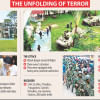
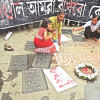
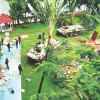
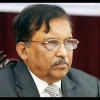


Comments